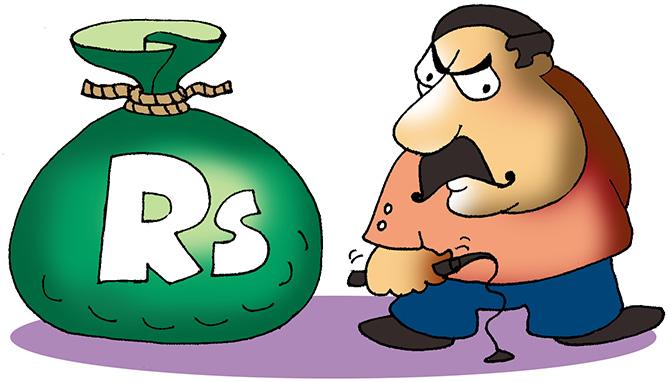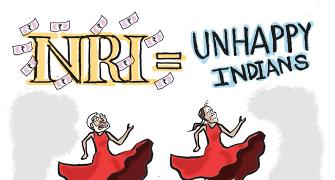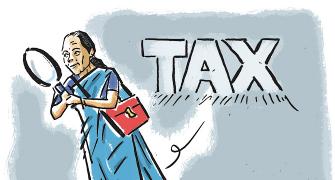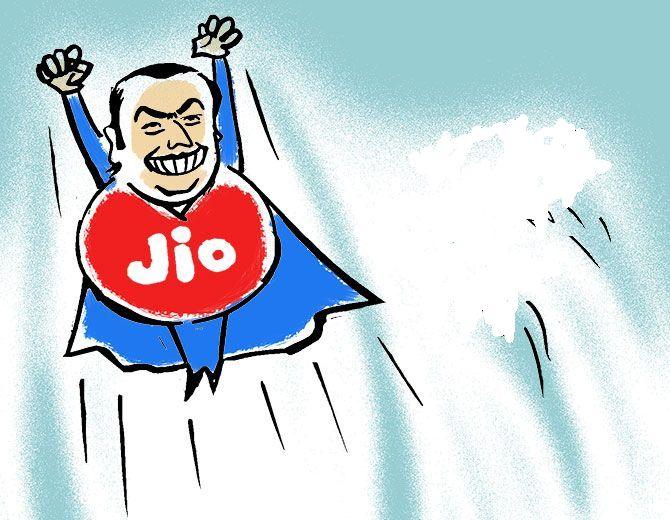The scheme offers waiver of interest, penalty, and prosecution for settling tax disputes.

Making the direct tax dispute resolution scheme attractive, the Union Cabinet on Wednesday expanded its scope to cover litigation pending in arbitration forums and debt recovery tribunals (DRTs).
The scheme will also include cases related to revision and small-value search disputes.
The Cabinet also reduced the disputed amount by half for those assessees who got favourable orders but the income-tax department challenged those.
The move comes a week after Finance Minister Nirmala Sitharaman introduced the Direct Tax Vivad se Vishwas Bill, 2020, in the Lok Sabha to resolve disputed tax cases, amounting to Rs 9.3 trillion, giving effect to the Budget announcement.
The scheme offers waiver of interest, penalty, and prosecution for settling tax disputes.
It was earlier limited to cases pending before the commissioner (appeals), the Income Tax Appellate Tribunal, high courts or the Supreme Court as of January 31, 2020.
Now, a complete waiver of interest and penalty will be given if tax dues are paid by March 31.
An additional 10 per cent of the disputed amount will have to be paid after that.
Union minister Prakash Javadekar, briefing the media after the Cabinet meeting, said it had decided to cover disputes pending in DRTs, arbitration, tribunals, and courts, besides revision issues, under the scheme.
This means that high-profile cases like Vodafone and Cairn Plc, which are pending in arbitration, are eligible for the scheme.
Queries sent to the two companies did not elicit any response.
Javadekar said the decision had been taken on the basis of suggestions received from various stakeholders.
“After the Union Budget, the finance minister held discussions with stakeholders and sought suggestions from them.
"On the basis of their suggestions, there are now new amendments to be made in this session of Parliament,” he said.
Disputes related to search and seizure cases where recovery is below Rs 5 crore will also be taken up under this scheme.
The whole purpose, Javadekar said, was to enlarge the scope of the Bill.
Amit Maheshwari, managing partner, Ashok Maheshwary & Associates LLP, termed it a welcome inclusion.
“Including revisions, arbitrations, and DRP proceedings will help in garnering more revenue.
"There was no good reason to keep these proceedings out of the purview of the scheme, if the intention is to garner revenue and reduce litigation.”
On the inclusion of small-value search cases, he said, “This will unlock stuck tax revenues and help in reducing the pending litigation. A lot of search cases end up in litigation and this is a welcome step.”
While the scheme is open till June 30, those availing of it will be given a complete waiver of interest and penalty if they pay the entire amount by March 31.
In the case of tax arrears pertaining to only disputed interest or penalty, 25 per cent of the disputed penalty/interest will need to be paid while settling appeals till March 31, and 30 per cent if payment is made after that.
Rajat Mohan of AMRG Associates said that after the debacle of the dispute resolution scheme of indirect taxes, the government was leaving no stone unturned to make the Vivad se Vishwas scheme a success and collect enough taxes to justify the time and energy spent on the scheme advocacy and bridge the current revenue deficit.
The scheme will apply to cases irrespective of whether demand in such cases is pending or has been paid.
The pending appeal may be against disputed tax, interest or penalty in relation to an assessment or reassessment order or against disputed interest or fee where there is no disputed tax.
Appeal may even be against tax determined on defaults in respect of tax deducted or collected at source.
However, it appears that cases related to undisclosed foreign income/assets and assessment or reassessment made on the basis of information received under the double taxation avoidance agreement are still out of the purview of the scheme.
Also, a person facing prosecution under the Indian Penal Code, Prevention of Money Laundering Act, or Prohibition of Benami Property Transactions Act cannot avail of the scheme.
The Budget scaled down the direct tax collection target to Rs 11.7 trillion from Rs 13.35 trillion, achieving which will require 2.9 per cent growth.
However, even that seems challenging, considering that the growth in the first 10 months stands at a negative 6 per cent.










